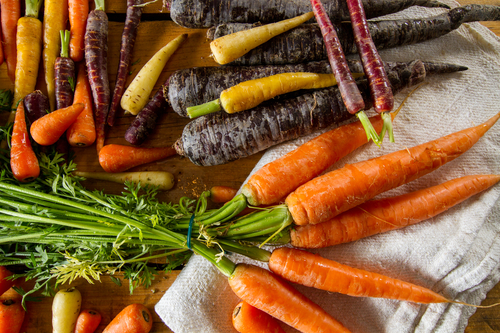New research debunks the link between orange carrots and Dutch royalty

The popular theory that Dutch farmers bred orange carrots as a tribute to William of Orange has largely been debunked by geneticists.
New research published in Nature Genetics casts doubt on the royal carrot conspiracy by showing orange carrots have been around for much longer than the 17th century. The researchers for the first time completely mapped the genome of the carrot, and found that mutations caused orange carrots to first appear in the days of the Roman Empire.
The study found that carrots were indeed bred for their orange colour by Dutch farmers, but ecologist Klaas Vriedling told the Volkskrant that ‘there is good evidence that the orange carrots had been there before.’
Before the Dutch began mass-growing the orange carrot we know today, carrots came in a much wider array of colours – red, purple, white and black.
Fashion
Lead researcher, Philipp Simon, told the Volkskrant that the root’s orange colour signifies a healthier carrot. However, he said that ‘these people had no clue. My guess is that carrots were at one time a food fashion in the 16th century.’
While this research doesn’t entirely rule out the theory, there is a lack of hard evidence linking orange carrots with Dutch royalty.
British researcher and curator of the online World Carrot Museum, John Stolarczyk, has pointed out that paintings and prints of orange carrots have existed for almost a millennium.
‘The closest to the truth is that the Dutch adopted orange as the national colour and then added orange carrots to the list of items “dedicated” to the royal family,’ he wrote on the museum’s website. ‘The orange carrot came first – the Royal family dedication second.’
Thank you for donating to DutchNews.nl.
We could not provide the Dutch News service, and keep it free of charge, without the generous support of our readers. Your donations allow us to report on issues you tell us matter, and provide you with a summary of the most important Dutch news each day.
Make a donation